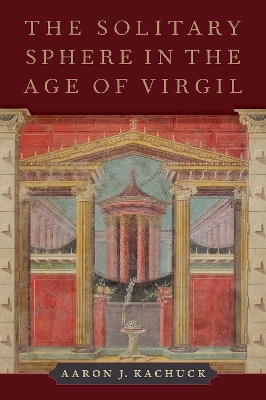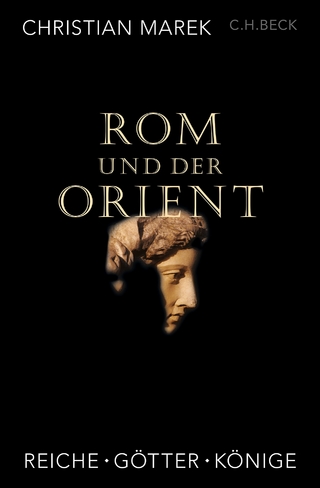
The Solitary Sphere in the Age of Virgil
Seiten
2022
Oxford University Press Inc (Verlag)
978-0-19-757904-6 (ISBN)
Oxford University Press Inc (Verlag)
978-0-19-757904-6 (ISBN)
Overturning centuries of scholarship that imagined life in the Roman world as happening only in society, Aaron J. Kachuck delivers a revelatory new perspective: ancient Rome not only possessed a vibrant sense of solitude, but its solitary sphere also lies behind its greatest masterpieces, from Cicero's philosophy to the life's works of Virgil, Horace, and Propertius.
The Solitary Sphere in the Age of Virgil uses an enriched tripartite model of Roman culture-touching not only the public and the private, but also the solitary-in order to present a radical re-interpretation of Latin literature and of the historical causes of this third sphere's relative invisibility in scholarship. By connecting Cosmos and Imperium to the Individual, the solitary sphere was not so much a way of avoiding politics, as a political education in itself. As re-imagined by literature in this age literature, this sphere was an essential space for the formation of the new Roman citizen of the Augustan revolution, and was behind many of the notable features of the literary revolution of Virgil's age: the expansion of the possibilities of the book of poetry, the birth of the literary cursus, new coordinations of cosmology and politics within strictly organized schemes, the attraction of first-person genres, and the subjective style. Through close readings of Cicero's late works and the oeuvres of Virgil, Horace, and Propertius and the works of other authors in the age of Virgil, The Solitary Sphere thus presents a revelatory reassessment of the classicism of classical Roman literature, and contributes to the study of pre-modern culture more generally, especially for traditions that have taken antiquity as too fixed a point in their own literary, religious, and cultural histories.
The Solitary Sphere in the Age of Virgil uses an enriched tripartite model of Roman culture-touching not only the public and the private, but also the solitary-in order to present a radical re-interpretation of Latin literature and of the historical causes of this third sphere's relative invisibility in scholarship. By connecting Cosmos and Imperium to the Individual, the solitary sphere was not so much a way of avoiding politics, as a political education in itself. As re-imagined by literature in this age literature, this sphere was an essential space for the formation of the new Roman citizen of the Augustan revolution, and was behind many of the notable features of the literary revolution of Virgil's age: the expansion of the possibilities of the book of poetry, the birth of the literary cursus, new coordinations of cosmology and politics within strictly organized schemes, the attraction of first-person genres, and the subjective style. Through close readings of Cicero's late works and the oeuvres of Virgil, Horace, and Propertius and the works of other authors in the age of Virgil, The Solitary Sphere thus presents a revelatory reassessment of the classicism of classical Roman literature, and contributes to the study of pre-modern culture more generally, especially for traditions that have taken antiquity as too fixed a point in their own literary, religious, and cultural histories.
Aaron J. Kachuck is a Research Fellow in Latin and Neo-Latin Literature at Trinity College, Cambridge, and an Affiliated Lecturer in the Faculty of Classics, University of Cambridge.
Dedication
Acknowledgements
Abbreviations
Introduction: The Solitary Sphere
I. Cicero Speaking with Solitudes
II. Virgil's Eclogues as Meditation
III. Virgil's Solitary Spheres
IV. Horace and the Slip to Solitudes
V. Love Elegy, Propertius, and Soliloquy
Conclusion: Imperium and the Individual
Bibliography
Notes
| Erscheinungsdatum | 27.07.2021 |
|---|---|
| Verlagsort | New York |
| Sprache | englisch |
| Maße | 244 x 168 mm |
| Gewicht | 640 g |
| Themenwelt | Literatur ► Klassiker / Moderne Klassiker |
| Geschichte ► Allgemeine Geschichte ► Altertum / Antike | |
| Geisteswissenschaften ► Philosophie ► Philosophie Altertum / Antike | |
| ISBN-10 | 0-19-757904-3 / 0197579043 |
| ISBN-13 | 978-0-19-757904-6 / 9780197579046 |
| Zustand | Neuware |
| Informationen gemäß Produktsicherheitsverordnung (GPSR) | |
| Haben Sie eine Frage zum Produkt? |
Mehr entdecken
aus dem Bereich
aus dem Bereich


